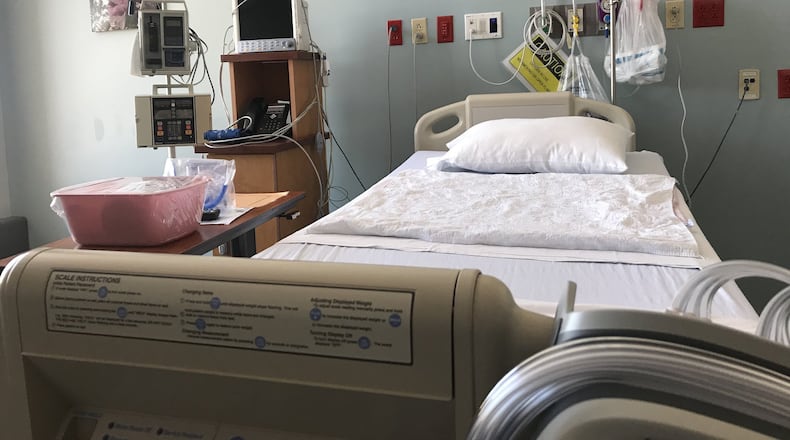“It’s not that there aren’t hospital regulations, but the lack of licensure prevents the state of Ohio from holding anybody accountable in a situation where there might need to be some accountabilities or remediations or restoration in response to a certain incident,” said Dan Tierney, spokesman for the governor.
MORE: What’s your hospital’s safety rating? Search latest Leapfrog grades
Dr. Amy Acton, director of the Ohio Department of Health will research the issue, make recommendations to DeWine and then he can provide that information to the legislature, which could create hospital licensing.
DeWine's administration is exploring options for increased oversight in the wake of a Columbus case of a Mount Carmel Health System physician accused of providing excessive and sometimes fatal doses of painkillers to patients. The health system in February had placed 23 employees on leave during the investigation, including nurses, managers and pharmacists, according to the Columbus Dispatch.
Hospitals already have to be regularly accredited by an approved third-party, such as the Joint Commission, in order to participate in Medicare. Each year, hospitals also already register with Ohio Department of Health and report information to the state.
U.S. Centers for Medicare & Medicaid Services, the Office of Inspector General, the Office for Civil Rights and the Office of the National Coordinator for Health Information Technology also monitor hospital compliance with federal regulations.
MORE: See how many people bought ACA insurance in your county
Many of the professionals working in hospitals are personally licensed such as nurses, aides, dietitians and doctors. Some individual parts of health systems are also licensed such as maternity, rehabilitation and psychiatric units.
“Hospitals are more than a building. We have all these different service lines. We have all these different programs that have to meet certain state requirements and federal requirements, and on top of that hospitals have their own protocols and processes when it comes to ensuring patient safety and health care quality,” said John Palmer, Ohio Hospital Association spokesman.
Rick Hodges, former director of the Ohio Department of Health under Gov. John Kasich, said the idea of hospital licenses is worthy of exploration. He said the regulation would mean more administrative expenses for both the state and for the hospitals, when the hospitals are constantly going through other quality review processes. However, he said licenses are one of the ways the state could track more information to be used by policy makers.
MORE: Ohioans living less healthy, spend more on health care
“There were many times when I wished we had information about what was going on … since we didn’t license them we had no mechanism for getting information,” he said.
Since nurses and doctors have licenses, people with complaints can go to a licensing board, but Molly Homan, spokeswoman for Ohio Nurses Association, there’s no state level license board for their members to speak out to when they have a concern about a hospital. She said this weakens the effectiveness of laws the nurses union advocates for.
“What we keep on running into is that we can pass all the laws that we want, but there’s no regulatory board in Ohio to hold hospitals accountable,” Holman said.
Sarah Hackenbracht, CEO of the Greater Dayton Area Hospital Association, said a license wouldn’t mean just filling out a form. There’s often follow up and on-site visits that take the time of clinical staff, and administration would have to monitor the requirements to make sure the hospital stays up on the latest changes, all of which takes time that could be spent on other health care responsibilities.
She said adding this additional layer of state regulation in an increasingly complicated regulatory environment “could have unintended consequences that don’t actually increase patient safety.”
About the Author
